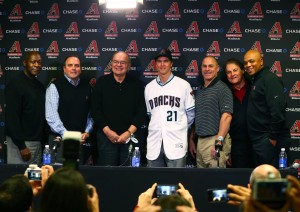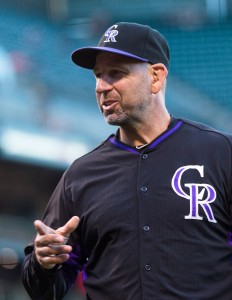As a professional baseball player, you deal with a lack of autonomy throughout your career. At the onset you don’t choose who you work for, they choose you. You can’t request a transfer, but instead are subject to being traded. If you don’t like your current situation, well, you can’t just up and leave and join another team that might present a better opportunity. These situations are entirely unique to your chosen profession, but you deal with them nonetheless. It’s simply part of the territory. You’re forced to play the cards you’re dealt, but at the same time, you’re happy to have cards to play. The one way to gain some limited freedom in our game is to reach free agency. For the select few, that chance is just around the corner.
Reaching free agency is not a reality for the average player, unfortunately. A player’s service time determines when they reach free agency. Service time is literally how many days you have been on the big league roster. Every day that service time clock ticks. One. Day. At. A. Time. It takes six full years of that clock ticking to be granted free agency. Six years is a long time. I made my debut in 2008 along with 238 other players that year. Of those 238, only 58 of us earned enough service time to reach free agency, roughly 24%.
If you do happen to be one of the guys to make it, though, it’s rare to earn six years of service time over six consecutive seasons. Players tend to shuffle from the big leagues to the minor leagues at the start of their careers, resulting in partial service time that counts toward your overall time. It might take seven or eight seasons for a player to earn six years of service. Throw in the two or three (and that’s on the short end) years in the minor leagues before reaching the bigs, and you’re looking at about ten years from the time a player is drafted until he can make any kind of decision that relates to his career. And the same rules apply to everyone. Perennial All-Stars have to wait just as long as tossed-around right handed middle relievers like myself.
Most players who reach free agency aren’t bombarded by all thirty teams, either. Having ten teams courting you is actually a lot. I was pumped that four or so teams were heavily involved once I reached free agency. The teams calling also might not be the most personally desirable or ideal situations. You could have family in a certain area that you’d like to be near, but have no teams interested for thousands of miles. Maybe you’ve only been offered platoon roles when you’ve always been a regular starter. Regardless of the options presented, it’s the presence of options at all that excites a player.
Now, the rules governing free agency aren’t unfair. They are what they are. While baseball is a business, it’s an extremely unique business, especially as it relates to the players. And know that when a player leaves your team as a free agent this off season, it’s nothing personal. It’s just a decision he has probably been waiting ten years to make.



